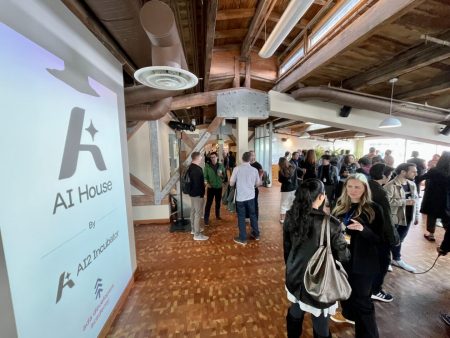Washington’s New Service Sales Tax Creates Waves Across Business Landscape
Washington state’s business landscape underwent a significant transformation on October 1 when Senate Bill 5814 took effect, expanding retail sales tax to a broad array of services that were previously exempt. This sweeping change impacts over 90,000 Washington businesses across technology, marketing, advertising, and nonprofit sectors, requiring them to collect sales tax on services ranging from digital advertising and custom software development to IT support and live presentations. Tax experts describe the scope as unprecedented, with Grant Shaver, principal at Seattle accounting firm Clark Nuber, calling it the most significant tax change in his career and noting that “virtually no business wouldn’t be affected by this in some way.” The timing has left many companies scrambling to understand and implement the new requirements, as the bill was passed during the final days of the legislative session earlier this year, giving businesses limited preparation time.
The implementation has created considerable confusion as companies work to determine whether their specific services fall under the newly taxable categories and how to identify taxable Washington sales. The Department of Revenue has been releasing interim guidance to help businesses navigate the law’s complexities, but many tax professionals believe the legislation was hastily conceived. A particularly challenging aspect involves determining where a sale occurs, as taxes are based not on where work is performed but where customers receive the service. Joe Fain, CEO at the Bellevue Chamber, predicted “compliance chaos for the next year,” suggesting many businesses will likely overpay or misclassify services simply to avoid audit risks. The law includes some notable exceptions—newspapers, radio/TV broadcasting, and out-of-home advertising such as billboards remain exempt from the new sales tax requirements.
Most businesses are still assessing how the change will affect their operations and client relationships. Paul Uhlir, CEO of Seattle-based advertising agency Add3, described the tax as an “unwanted distraction” with “nebulous implications,” though he noted it hasn’t yet slowed client growth. Scott Foreman, CEO at another Seattle agency, Copacino Fujikado, reported that clients have been understanding as his firm works through the implications, but acknowledged that “the main adjustment for many is that this tax wasn’t factored into their 2025 planning, so some will shift budgets to accommodate it.” The concern remains that advertisers with fixed budgets might purchase fewer services from Washington businesses as the sales tax effectively increases their costs, potentially disadvantaging in-state service providers compared to out-of-state competitors.
The legislative rationale behind SB5814 centers on “modernizing” Washington’s tax system to better reflect an economy increasingly dominated by services and digital products. Senator Noel Frame (D-Seattle), who co-sponsored the bill, defended it as a “good government update to make our tax code more appropriate for the 21st century,” explaining during Senate floor debate that “as more and more of our economy happens with computers and technology, this bill is doing the work to modernize the tax code to match.” The expansion is projected to raise approximately $1.1 billion over the 2025-27 biennium, with revenue directed toward education, healthcare, and social services. However, the law faces legal challenges—Comcast sued last month to block the advertising portion, arguing it discriminates against internet ads under the Internet Tax Freedom Act. If successful, this challenge could reduce projected collections by roughly $475 million over the next four fiscal years.
This sales tax expansion represents just one piece of a larger tax package approved by Washington lawmakers this year to address a $16 billion budget shortfall. Other new measures include an increase to the Business & Occupation (B&O) tax for larger companies, a higher computing surcharge for major tech firms like Microsoft and Amazon, and an increase to the capital gains tax. A proposed wealth tax did not pass. The cumulative effect of these changes has led to a surge in demand for tax advisors, with Shaver wryly noting, “It’s a good time to be a tax advisor.” Washington’s unusual tax structure—one of few states without personal or corporate income tax—means it relies heavily on sales, property, and B&O taxes, a system critics argue places disproportionate burden on lower-income residents.
The broader implications for Washington’s economic competitiveness remain uncertain. At the Seattle Metropolitan Chamber’s annual meeting last month, Microsoft President Brad Smith cautioned that a “tax-first agenda” could undermine the region’s economic foundation. Washington’s position as one of the only states to broadly tax digital advertisements (alongside Maryland, whose similar 2021 law remains under litigation) raises questions about potential competitive disadvantages for businesses operating primarily within the state. As businesses adapt to this significant change in the tax landscape, the full impact on Washington’s economy, service providers, and consumers will likely take months or years to fully materialize, leaving many business leaders navigating uncertainty while hoping for additional clarity from state authorities.















